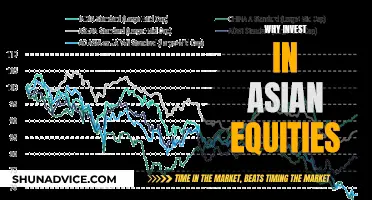
There are a variety of options for investing your cash savings, each with its own pros and cons. Here are some of the most common ones:
- High-yield savings accounts: These accounts offer a higher interest rate than standard savings accounts, often with FDIC protection. While they may require a larger initial deposit, they provide a risk-free way to invest your money.
- Certificates of Deposit (CDs): CDs are similar to savings accounts but usually offer higher interest rates, especially with larger and longer deposits. However, you need to keep your money in the CD for a specified period to avoid a penalty.
- Money market accounts: These accounts offer a higher interest rate than regular savings accounts and provide features like ATM cards, checks, and deposit slips. They are highly liquid and suitable for those who need frequent access to their funds.
- Short-term bond funds: These funds invest in short-term bonds, which mature within a few years. They offer a relatively safe investment option with the potential for higher yields.
- Real estate investment trusts (REITs): REITs allow you to invest in income-producing real estate without the hassle of being a landlord. They offer diversification and the potential for higher returns but may have lower liquidity.
- Stocks: Investing in stocks can lead to high returns but comes with the inevitable ups and downs of the market. It is generally recommended for long-term investment horizons.
| Characteristics | Values |
|---|---|
| Interest Rate | 3% to 5% |
| Risk | Low to High |
| Liquidity | High to Low |
| Access | Online transfer, check writing, ATM card |
| Transaction Costs | Low to High |
| Safety | FDIC-insured, NCUA-insured, AAA credit rating |
What You'll Learn

High-yield savings accounts
- Interest Rates: High-yield savings accounts offer annual percentage yields (APYs) that are significantly higher than the national average. For example, the current national average rate for savings accounts is around 0.45%, while high-yield savings accounts can offer rates of 4% or more. This means your savings will grow faster over time without any additional effort on your part.
- Safety and Insurance: High-yield savings accounts are considered safe because they are federally insured. Accounts held at banks are insured by the Federal Deposit Insurance Corporation (FDIC), while accounts at credit unions are insured by the National Credit Union Administration (NCUA). This insurance protects your deposits up to $250,000 per depositor, per bank, and per account type.
- Accessibility: High-yield savings accounts provide easy access to your money. You can typically withdraw funds through online transfers, ATMs, or by writing checks (although there may be limits on the number of certain types of withdrawals per month). Some high-yield savings accounts also offer debit cards for added convenience.
- Low Minimum Balances and Fees: Many high-yield savings accounts have low or no minimum balance requirements, making them accessible to a wide range of savers. Additionally, these accounts often have no monthly maintenance fees, so you can keep more of the interest you earn.
- Online Accessibility: Many high-yield savings accounts can be opened and managed entirely online, providing the convenience of digital banking. This includes mobile apps that allow you to deposit checks, transfer funds, and manage your savings on the go.
- Ideal for Short-Term Goals: High-yield savings accounts are well-suited for short-term savings goals. They provide liquidity, allowing you to access your funds when needed, while also earning a competitive interest rate. This makes them a good choice for emergency funds or savings for upcoming purchases.
When choosing a high-yield savings account, it's important to compare the interest rates, fees, minimum balance requirements, and accessibility options offered by different financial institutions. Additionally, consider your own financial goals and how the account will fit into your overall financial plan.
Equity Saving Schemes: A Guide to Investing Wisely
You may want to see also

Money market accounts
Be sure to find a money market account that is FDIC-insured so that your account will be protected from losing money, with coverage of up to $250,000 per depositor, per bank.
The best money market accounts have strong rates that can help increase your savings funds. The best money market accounts have rates that are many times higher than the average money market rate, which is a fraction of a percent.
- Discover® Money Market Account: Best for Money Market Account, 3.80% APY
- Quontic Money Market Account: Best for Money Market Account, 5.00% APY
- Vio Bank Cornerstone Money Market Account: Best for Money Market Account, 5.05% APY
- Sallie Mae Money Market Account: Best for Money Market Account, 4.20% APY
- Ally Bank Money Market Account: Best for Money Market Account, 4.00% APY
- Zynlo Money Market Account: Best for Money Market Account, 5.00% APY
- EverBank Performance Money Market: Best for Money Market Account, 4.00% APY
- First Foundation Bank Online Money Market: Best for Money Market Account, 4.90% APY
Unlocking the Power of Savings and Investments
You may want to see also

Short-term bond funds
- SPDR Portfolio Short-Term Corporate Bond ETF (SPSB): This fund offers exposure to US corporate bonds with maturities between one and three years. It has an SEC yield of 4.48% and an expense ratio of 0.04%.
- IShares 1-5 Year Investment Grade Corporate Bond ETF (IGSB): This fund aims to track the performance of an investment-grade corporate bond index with maturities between one and five years. It has an SEC yield of 4.60% and an expense ratio of 0.04%.
- Schwab 1-5 Year Corporate Bond ETF (SCHJ): This fund seeks to track the total return of an index measuring the performance of the short-term US corporate bond market. It has an SEC yield of 4.47% and an expense ratio of 0.03%.
- Vanguard Short-Term Bond ETF (BSV): This fund aims to track the performance of a market-weighted bond index made up of investment-grade bonds with a dollar-weighted average maturity of 1-5 years. It has an SEC yield of 4.11% and an expense ratio of 0.04%.
- Fidelity Short-Term Bond Fund (FSHBX): This fund aims to produce a high level of current income while preserving capital. It typically invests at least 80% of its assets in investment-grade debt and has a dollar-weighted average maturity of three years or less. It has an SEC yield of 4.39% and an expense ratio of 0.30%.
It is important to note that while short-term bond funds are safer than investing in high-yield bonds or the stock market, they are not risk-free. Investors seeking yields with even less risk may consider money market funds.
Home Purchase: Investment or Saving Strategy?
You may want to see also

Cash management accounts
These accounts are considered "non-bank" products, generally offered by online brokerages, mobile investing apps, and robo-advisors. With checking, savings, and investments all managed under the same roof, users can easily transfer money between accounts.
Wealthfront Cash Account
Wealthfront is a robo-advisor offering automated investing services. Its Cash Account provides a high APY with no minimums or caps, zero account fees, a debit card, and fee-free access to over 19,000 ATMs. It also offers early direct deposits and up to $8 million in FDIC insurance coverage through partner banks.
Empower Personal Cash
Empower Personal Cash is ideal for consolidating accounts, as Empower offers a range of investment and personal finance products. It includes access to a well-liked dashboard interface with free tools like a Retirement Planner and Investment Checkup. The account offers a competitive APY with no fees or minimum balance, up to $5 million in FDIC coverage, unlimited monthly transfers, and a daily withdrawal limit of up to $100,000.
Interactive Brokers
Interactive Brokers offers a high APY for balances over $10,000. It provides up to $2.75 million in coverage, including FDIC insurance and SIPC coverage. The account includes direct deposit, mobile check deposit, bill pay, a debit card, and fee-free ATM access. It also offers margin trading for more sophisticated investors.
Betterment Cash Reserve
Betterment Cash Reserve is a robo-advisor option with one of the highest cash management account returns. It offers a welcome bonus, zero monthly fees, no overdraft fees, and up to $2 million in FDIC insurance coverage. It also includes a debit card with cash-back rewards at select brands and reimburses ATM fees worldwide.
Fidelity Cash Management Account
Fidelity is a well-known brokerage offering a cash management account with no account fees or minimums, a fee-free debit/ATM card, ATM fee reimbursements, checkwriting, mobile check deposit, bill pay, and FDIC insurance on cash balances. It provides access to a range of investment options and free online transfers between Fidelity and bank accounts.
Invest Less, Save More: Strategies for Financial Success
You may want to see also

Certificates of deposit
CDs generally pay higher interest rates than savings and money market accounts. They are a safer and more conservative investment than stocks and bonds, but offer a lower opportunity for growth. CDs are insured by the Federal Deposit Insurance Corp. (FDIC) at banks and by the National Credit Union Administration (NCUA) at credit unions, so you won't lose money.
The interest rate on CDs is usually fixed, though there are variable-rate CDs that could earn a higher return if rates rise. With a fixed-rate CD, you'll know exactly how much you'll earn by the end of the term, but it could hurt you if rates rise after you're locked in. The longer the term, the higher the interest rate.
CDs are a good option if you have cash that you don't need now but will want within a few years. They can help you save for a vacation, a new home, or a car. CDs can also be a good option if you want some of your savings invested conservatively, as they can help you achieve lower risk and volatility than investing in the stock and bond markets.
One downside of CDs is that your money is locked into the investment. However, this can be beneficial for savers who worry that they will be tempted to withdraw from their savings. The fixed term of a CD and the penalty for early withdrawal provide a deterrent to spending.
CDs are available at most banks and credit unions, as well as through brokerage accounts.
Investing vs Saving: Understanding the Key Differences
You may want to see also







